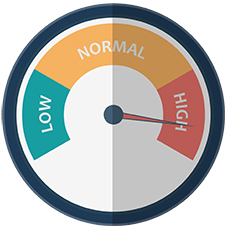Hidden Link
 The new threshold for high blood pressure begins at 130/80 mm Hg rather than 140/90.
The new threshold for high blood pressure begins at 130/80 mm Hg rather than 140/90.
This adds 30 million adults to the ranks of those being treated with lifestyle changes or medicine for high blood pressure, for a total of 100 million—nearly half of all adults in the U.S.
This earlier treatment might be good news for another reason, says geriatric neuropsychologist Felicia Goldstein, a professor in Emory’s Department of Neurology who believes that diseases like Alzheimer’s may be linked to high blood pressure.
“Hypertension may be a modifiable risk factor for Alzheimer’s disease, in contrast to other known risk factors such as advanced age, female gender, and family history,” she says. “Therefore, there is the ability to make lifestyle changes.”
Hypertension should be aggressively treated in young adults, given the strong evidence for a relationship between midlife hypertension and the risk for cognitive impairment and Alzheimer’s disease in late life, she says. Goldstein recommends a personalized approach that addresses issues including psychosocial stressors, poor lifestyle habits, such as tobacco use, and the presence of other vascular comorbidities, such as diabetes and heart disease.
Related Stories
"Caring for Mary" (Emory Health Digest, Fall 2017)
"Lower blood pressure targets for older adults may offer cognitive benefits, study suggests" (Aug. 24, 2017)





